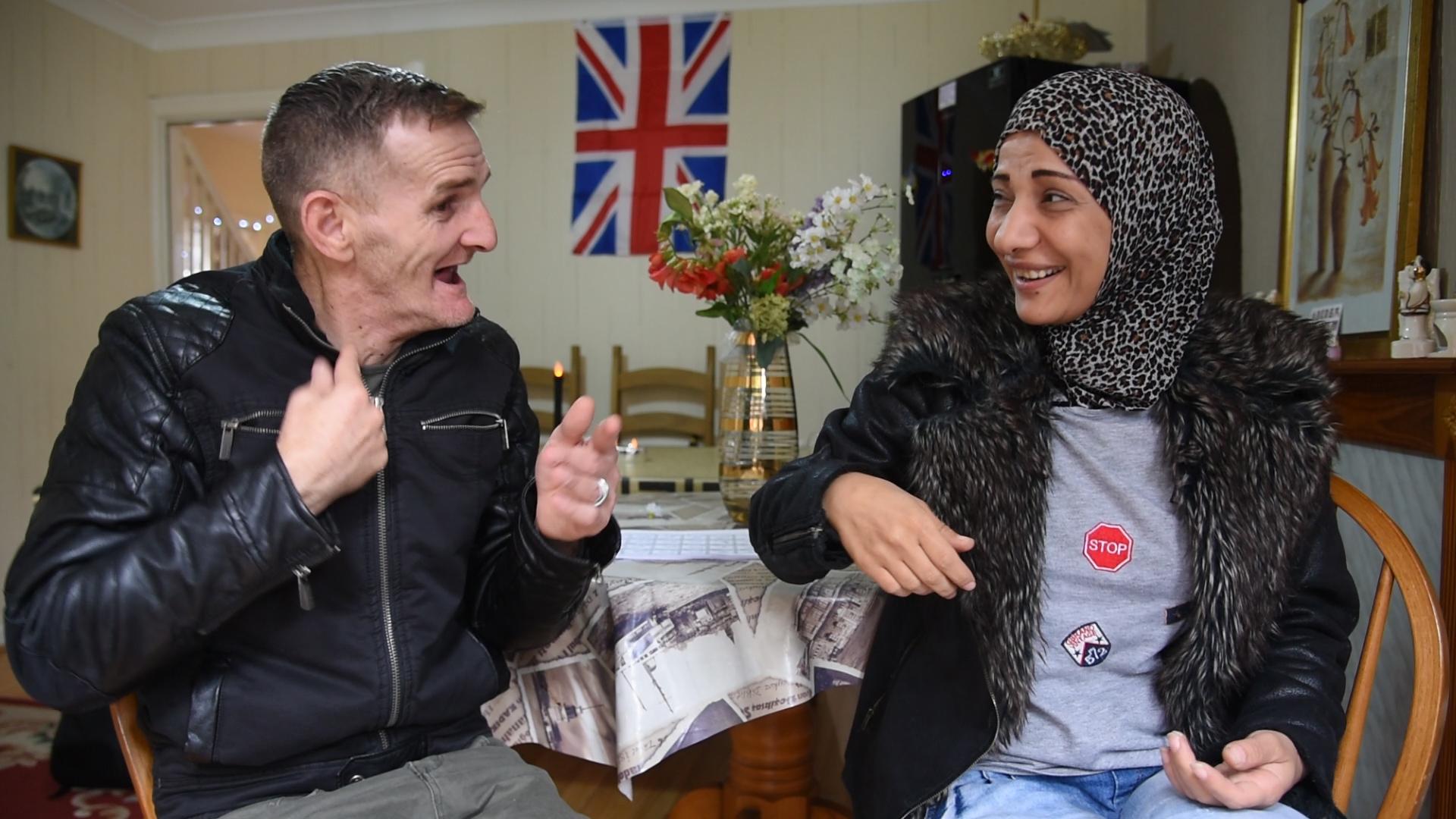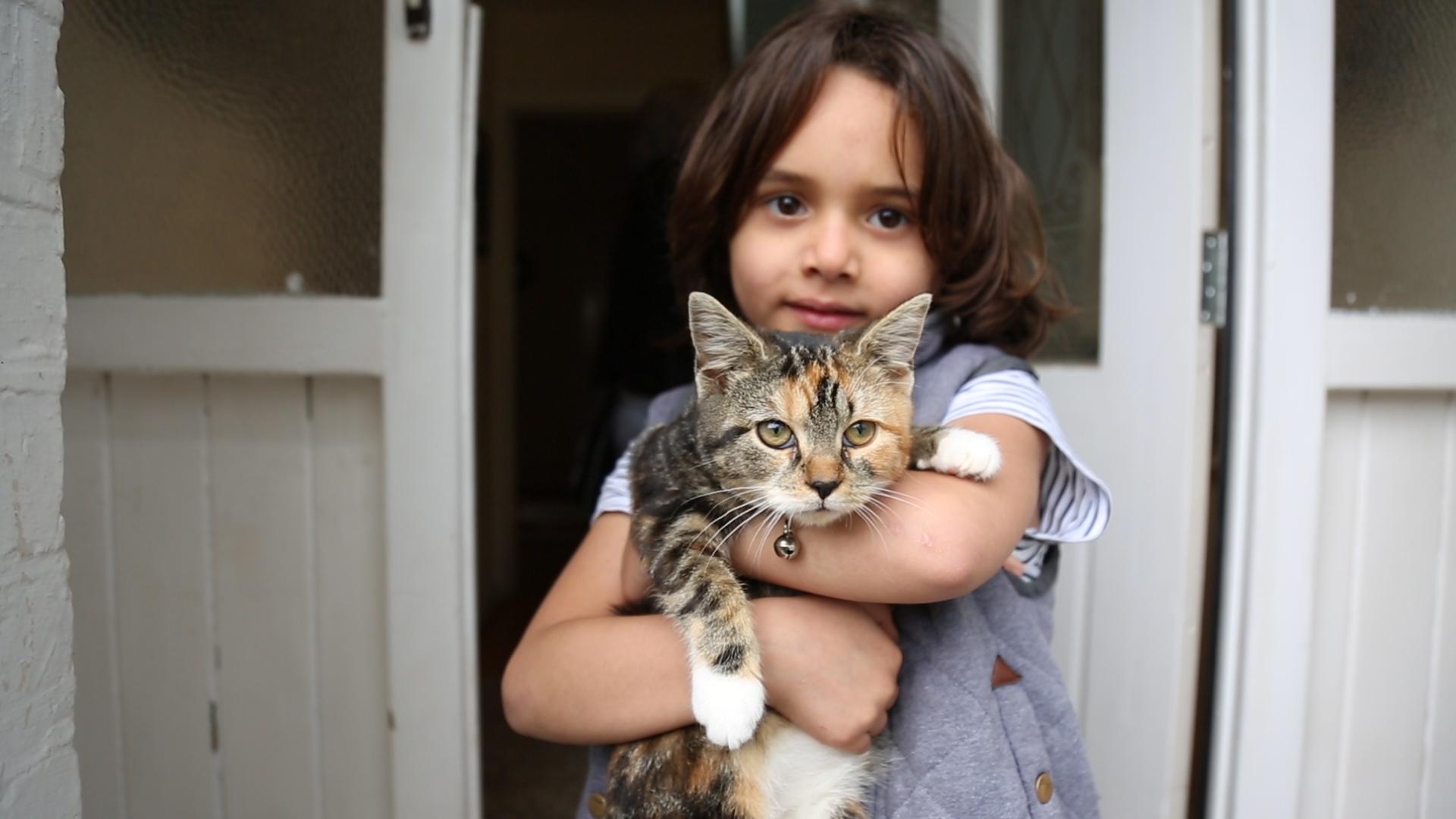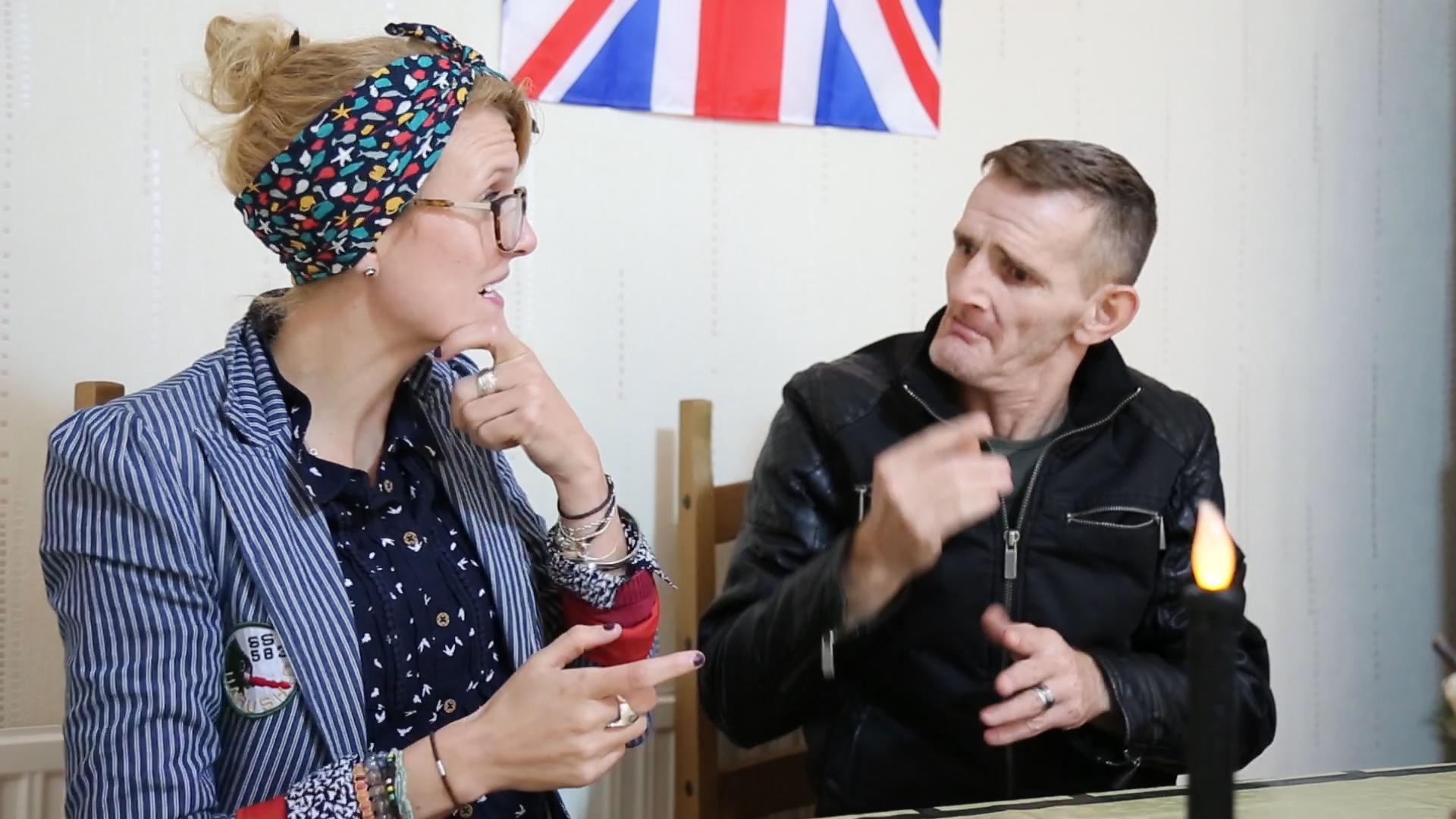Refugee loneliness: The deaf Syrian father learning British Sign Language to combat isolation
After a career teaching Arabic sign language to children in Aleppo, Ahmad is having to learn to sign in a different language from scratch
Your support helps us to tell the story
From reproductive rights to climate change to Big Tech, The Independent is on the ground when the story is developing. Whether it's investigating the financials of Elon Musk's pro-Trump PAC or producing our latest documentary, 'The A Word', which shines a light on the American women fighting for reproductive rights, we know how important it is to parse out the facts from the messaging.
At such a critical moment in US history, we need reporters on the ground. Your donation allows us to keep sending journalists to speak to both sides of the story.
The Independent is trusted by Americans across the entire political spectrum. And unlike many other quality news outlets, we choose not to lock Americans out of our reporting and analysis with paywalls. We believe quality journalism should be available to everyone, paid for by those who can afford it.
Your support makes all the difference.When the bombs began falling on Aleppo, Ahmad, a deaf father of four, couldn’t hear them.
“I was frightened,” he tells the The Independent. “I didn’t know when it was happening, where it was happening. I just wanted to protect my family and move them away.”
After his wife Mountaha’s mother was killed in the airstrike which destroyed their home, the family fled Syria. They spent six years in Lebanon before arriving in the UK in June.
Ahmad uses Arabic sign language and Mountaha can't speak English, meaning they are struggling to learn how to communicate and get by in their new home country.
While Ahmad has recently started classes in British Sign Language (BSL), Mountaha is still waiting to start English classes five months after arriving in Birmingham.
According to new research by Refugee Action, refugees are now waiting up to three years to start learning English, as cuts in funding have left colleges struggling to meet the demand for classes.

The research has been released as part of the Jo Cox Loneliness Commission, which was established by the former Labour MP murdered last year.
Refugee Action, which polled the English language providers of more than 35,000 learners, said its study shows that current provisions are “not fit for purpose” with average waits for access to classes standing at six months.
Stephen Hale, chief executive of Refugee Action, said: “Leaving refugees isolated and unable to start learning English is a huge barrier to integration.
“A shared language prevents communities becoming alienated, and enables friendships and understanding to develop between people of different cultures.”
Despite living in the UK for nearly half a year, Mountaha says she hasn’t been able to make any friends, something she desperately wants to change. While some classes are available in her area, she has been unable to access them because there are no additional services to help her with childcare.

“I tried to have a conversation with my neighbour yesterday,” Mountaha says. “We tried to talk but couldn’t understand each other. I felt very lonely and sad.”
Separated from friends and family, and isolated by a language barrier, loneliness can have a long-lasting impact on the mental health of refugees.
“Loneliness itself isn’t a mental health problem, but the two are often strongly connected,” Vicki Nash, head of policy and campaigns at mental health charity Mind told the Independent.
“Supporting the mental health and wellbeing of vulnerable migrants in local areas is a big challenge facing commissioners.”
Ahmad worked in a deaf school in Aleppo, teaching children how to use sign language. He was a prominent and well-respected member of the deaf community.
Despite trying to find work in Lebanon, the language barrier held Ahmad back and he found he was heavily discriminated against due to his disability.

Ahmad’s confidence was low by the time the family reached the UK. “I felt isolated, and so I stayed at home,” he remembers. He is now taking BSL lessons at Birmingham’s Deaf Cultural Centre and feels optimistic about possibilities in the future.
“Little by little, if I can learn just a little bit and my knowledge grows, I’ll be strong.”
According to the research, women face the biggest barriers to learning, with 77 per cent of providers unable to provide childcare at all or enough to meet the needs of all those who want to learn.
“Ahmad and the children were my first responsibility when we arrived,” Mountaha explains. “I couldn’t leave him alone by himself, and without support I couldn’t look to go to English classes.”

The colleges and organisations that provide English for Speakers of Other Languages (ESOL) classes say quality is crumbling under a dramatic decline in funding over recent years, with current levels less than half what was available eight years ago.
The majority (80%) of providers with waiting lists said a lack of Government funding was the reason behind long delays for learners.
The worsening state of ESOL provision in England comes despite a growing body of evidence – including the Government-commissioned Casey Review – finding that learning English is vital for effective integration.
As one provider said: “It’s a Catch-22 situation – the Government complains that people who have come to live in this country aren’t making enough effort to learn English, but there aren’t sufficient classes for them to progress.”
A spokesperson for the Department of Education said: “We are committed to supporting all adults in England secure the English language skills they need for life and work. Adults who are granted refugee status are eligible for the same skills funding as any other English resident.”

Join our commenting forum
Join thought-provoking conversations, follow other Independent readers and see their replies
Comments